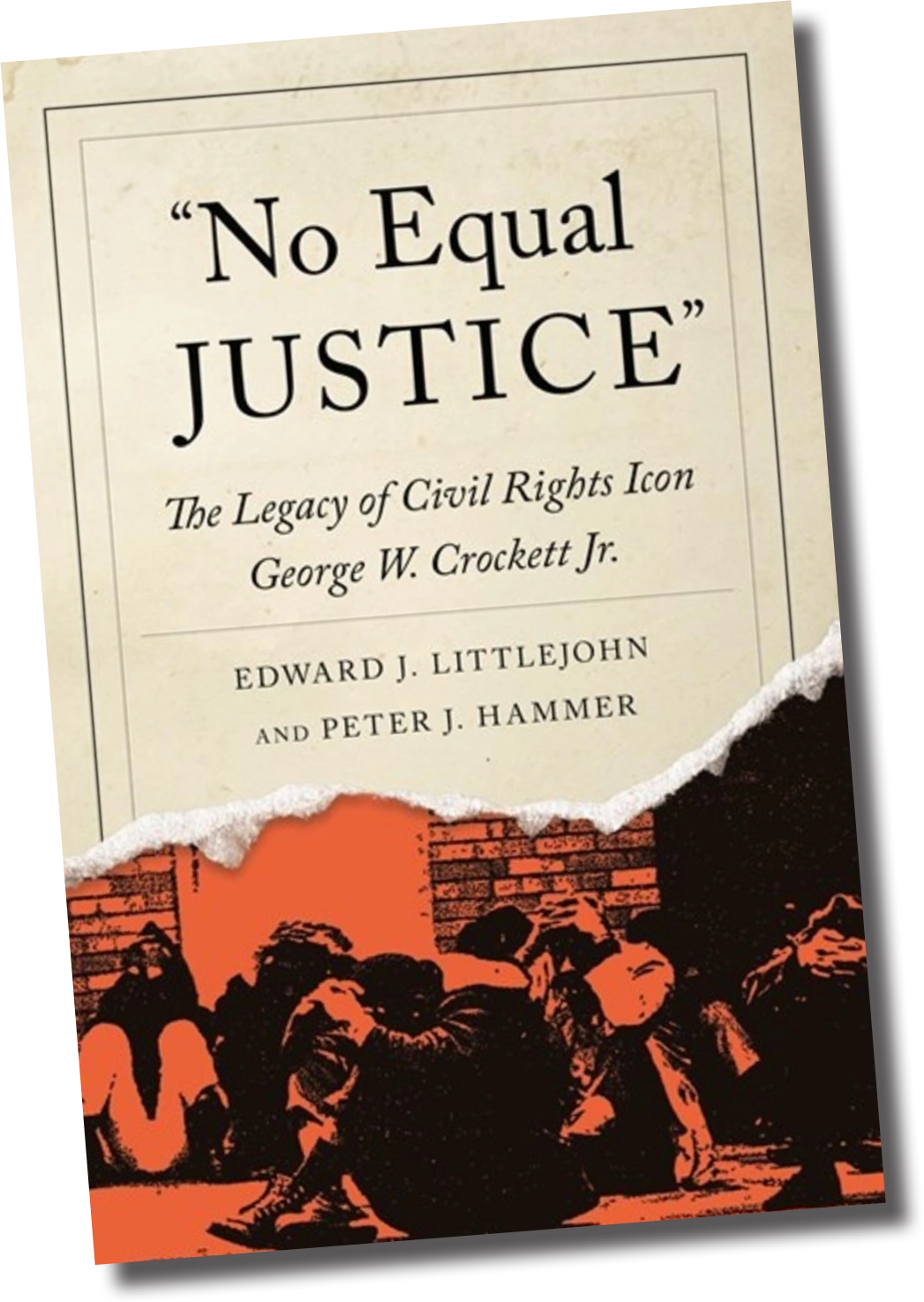“No Equal Justice”

The book — which has already garnered a number of awards — begins by tracing the Crockett family history from slavery to Crockett’s admission into the University of Michigan Law School. He became one of the most senior Black lawyers in President Franklin Roosevelt’s New Deal administration and later played a central role fighting discrimination in the United Auto Workers union. In 1948, in a team of five attorneys, he was the only Black lawyer defending the constitutional rights of the leaders of the U.S. Communist Party in Dennis v. United States, the longest and most dramatic political trial in American history. At the close of the case, Crockett and his defense colleagues were summarily sentenced to prison for zealously representing their clients. He headed the National Lawyers Guild office in Jackson, Mississippi, during 1964’s Freedom Summer.
In 1966, Crockett was elected to Detroit’s Recorder’s Court, the court hearing all criminal cases in the city. For the first time, Detroit had a courtroom where Black litigants knew they would be treated fairly. In 1969, the New Bethel Church Incident became Crockett’s most famous case. He held court proceedings in the police station itself, freeing members of a Black nationalist group who had been illegally arrested. In 1980, he was elected to the United States Congress, where he spent a decade fighting President Ronald Reagan’s agenda, as well as working to end apartheid in South Africa and championing the cause to free Nelson Mandela.

4 questions with non-J.D. program students

He spent four months in jail for doing his job as a lawyer and faced disbarment when he got back for now being a felon. He took chances and suffered consequences for his beliefs. He was willing to take the consequences of taking grave action.
But there are also differences. If you would ask Judge Keith what his most important professional affiliation was, it would be the NAACP. If you asked Judge Crockett what it would be, he would say the National Lawyers Guild. Historically, there were often tensions in the approaches and strategies between the NAACP and the National Lawyers Guild; you can see some of these tensions in the temperaments and approaches of Judge Keith and Judge Crockett. They were two very different personalities, but also two incredible champions for justice.